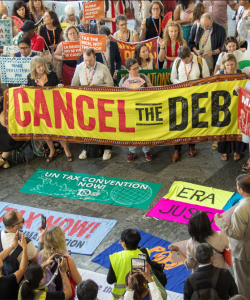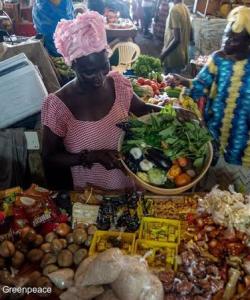SID Blogs
SID joins more than 50 human rights organizations, nonprofits and international development experts calling on the World Bank to investigate its health-care investments in Africa and Asia, citing Bloomberg News articles about alleged patient abuses.
SID joins over 150 global economists in a powerful joint statement urging the international community to hold the Israeli government accountable for the past two years of unimaginable destruction of human life, communities and futures in Palestine.
The article, written by Nicoletta Dentico, SID Director of the Health Justice Programme, exposes hunger stripped of euphemisms and humanitarian clichés, but as a brutal weapon of war and control, from Gaza to Sudan, demanding we confront its political roots.
The Civil Society and Indigenous Peoples’ Mechanism (CSIPM) of the UN Committee on World Food Security (CFS) will not participate in the upcoming UN Food Systems Summit +4 (UNFSS+4), at the end of July 2025, or its preparatory processes. This decision reflects a collective assessment that no meaningful changes have been made to the Summit’s direction, governance and safeguards against corporate influence since 2021.
On 3 July 2025, over 100 members of civil society organizations, trade unions, movements and networks from around the world gathered inside the Fourth International Conference on Financing for Development (FfD4) official venue for a peaceful action.
April 16th 2025 - Faced with a global financial system that undermines the right to food and food sovereignty, civil society and Indigenous Peoples’ organisations called on governments to strengthen public policies and financing that favour local food production, to guarantee transparency and effective accountability mechanisms, and to ensure the active participation of small-scale producers in the design, monitoring and evaluation of these policies.
Digitalization in health demands a governance architecture that generates trust, empowers people, and checks the power of Big Tech. Read the article by Nicoletta Dentico.
Explore the Mattei Plan’s ambitions and contradictions, how Italy’s initiative in Africa balances political interests, private sector involvement, and the challenges of equitable cooperation. Read the article by Nicoletta Dentico.








